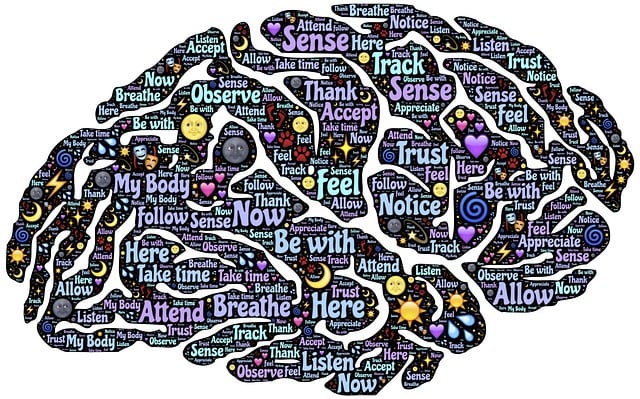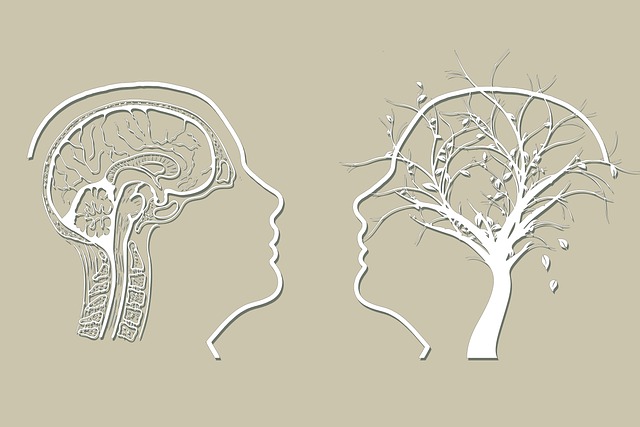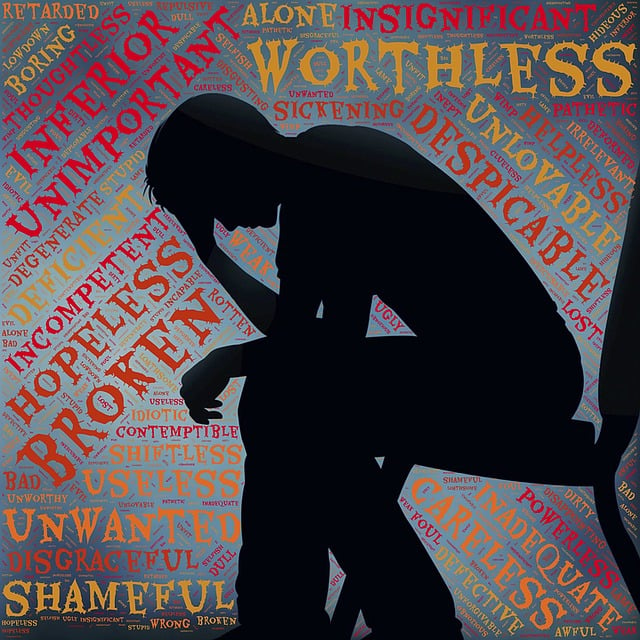In today's diverse healthcare landscape, cultural competency is vital for providing sensitive and equitable care, especially in managing complex conditions like bipolar disorder. Castle Rock Bipolar Disorder Therapy (CRBDT) offers a revolutionary approach by focusing on creating safer spaces through culturally competent therapists, fostering trust, and respecting patient values. CRBDT combines self-awareness exercises, emotional well-being promotion, and personalized care to improve patient engagement and outcomes. Their training programs involve interactive workshops, case studies, and role-playing to build resilience among healthcare providers. Evaluating cultural competency initiatives using key performance indicators, patient feedback, and quantitative data ensures continuous improvement and better health outcomes for diverse populations.
Cultural competency training is an essential pillar of modern healthcare, ensuring providers deliver effective, equitable care to a diverse patient population. This article explores this crucial topic, delving into various facets of cultural competence in healthcare. We examine how unconscious biases impact patient outcomes, present a case study on Castle Rock Bipolar Disorder Therapy demonstrating culturally sensitive practices, and offer insights into developing and evaluating training programs. By understanding and addressing cultural competency, healthcare providers can significantly improve patient care and outcomes.
- Understanding Cultural Competency in Healthcare: A Necessity in Modern Practice
- The Impact of Cultural Biases on Patient Care and Outcomes
- Castle Rock Bipolar Disorder Therapy: A Case Study in Cultural Sensitivity
- Developing Effective Training Programs for Healthcare Providers
- Measuring and Evaluating the Success of Cultural Competency Initiatives
Understanding Cultural Competency in Healthcare: A Necessity in Modern Practice

In today’s diverse healthcare landscape, cultural competency is no longer a nice-to-have but a necessity. This concept involves understanding and appreciating the cultural differences that shape patients’ experiences and interactions with healthcare providers. With communities becoming increasingly multifaceted, healthcare professionals must be equipped to offer culturally sensitive care. For instance, in Castle Rock bipolar disorder therapy sessions, therapists who possess this competency can create safer, more inclusive spaces for individuals dealing with mental health challenges, often influenced by their unique cultural backgrounds and identities.
Cultural awareness is pivotal in fostering effective communication, building trust, and ensuring equitable healthcare access. It enables professionals to adapt their approaches, respecting patients’ values, beliefs, and customs. Moreover, self-awareness exercises and emotional well-being promotion techniques play a significant role in enhancing cultural competency. By encouraging healthcare providers to reflect on their own biases and experiences, these tools facilitate better understanding of patients’ perspectives, contributing to improved patient outcomes. Self-care routine development for better mental health is another integral aspect, as it helps professionals maintain resilience and sensitivity when confronting diverse cultural needs.
The Impact of Cultural Biases on Patient Care and Outcomes

Cultural biases among healthcare providers can significantly impact patient care and outcomes, especially when dealing with complex mental health conditions like bipolar disorder. In many cases, unconscious stereotypes and assumptions lead to misdiagnosis or inadequate treatment plans. For instance, individuals from diverse cultural backgrounds may present symptoms of bipolar disorder differently than what is typically expected based on western medical norms. This can result in delayed or incorrect diagnoses, affecting the timing and effectiveness of interventions.
A community outreach program implementation that incorporates training in cultural competency can help address these biases. Educating healthcare professionals about various cultural perspectives empowers them to offer more personalized care. By learning stress reduction methods and mental wellness practices from different communities, providers gain a deeper understanding of their patients’ needs, leading to improved patient-provider relationships and better overall outcomes, including enhanced therapeutic alliances for conditions like Castle Rock bipolar disorder therapy.
Castle Rock Bipolar Disorder Therapy: A Case Study in Cultural Sensitivity

In the context of healthcare, cultural sensitivity is paramount, especially when addressing complex mental health conditions like bipolar disorder. The case study of Castle Rock Bipolar Disorder Therapy offers valuable insights into how cultural competency training can transform patient outcomes. This therapeutic approach recognizes that understanding a patient’s cultural background and personal experiences is crucial for effective treatment. For instance, healthcare providers equipped with emotional intelligence and enhanced confidence through burnout prevention strategies can create a safe space for patients to share their unique perspectives, fears, and coping mechanisms.
By embracing this nuanced approach, Castle Rock Bipolar Disorder Therapy challenges traditional one-size-fits-all treatment models. It underscores the importance of tailoring interventions to meet individual needs, ensuring that cultural barriers to care are addressed. This holistic strategy not only improves patient engagement but also fosters a deeper understanding between caregivers and patients, potentially leading to better adherence to treatment plans and improved health outcomes.
Developing Effective Training Programs for Healthcare Providers

Developing effective training programs for healthcare providers is a multifaceted process that requires careful consideration of diverse cultural needs and perspectives. At Castle Rock Bipolar Disorder Therapy, we understand that cultural competency goes beyond basic awareness; it empowers providers to deliver empathetic, tailored care. A robust training regimen should incorporate interactive workshops, case studies reflecting real-world scenarios, and opportunities for role-playing to enhance practical application.
Integrating practices like mindfulness meditation and self-care can further enrich these programs. By teaching healthcare professionals how to manage their own stress and maintain emotional balance, we foster a culture of resilience that translates into better patient outcomes. This holistic approach ensures that providers are not only culturally competent but also emotionally equipped to navigate the complexities of diverse patient populations, ultimately enhancing the quality of care they deliver.
Measuring and Evaluating the Success of Cultural Competency Initiatives

Measuring and evaluating the success of cultural competency initiatives is a multifaceted process. It involves tracking improvements in patient satisfaction, access to care, and health outcomes tailored to diverse cultural needs. For instance, in treating conditions like Castle Rock Bipolar Disorder Therapy, culturally competent care can significantly enhance patient engagement and adherence to treatment plans.
Assessing these initiatives requires a combination of quantitative data—such as survey responses and clinical metrics—and qualitative feedback from both patients and healthcare providers. Regular monitoring allows for continuous improvement, ensuring that programs like Self-Care Routine Development for Better Mental Health and Mental Wellness Journaling Exercise Guidance remain effective. Moreover, evaluating cultural competency fosters a confidence-boosting environment where providers feel equipped to navigate complex interpersonal dynamics, ultimately leading to better patient outcomes.
Cultural competency training is a transformative tool in healthcare, as evidenced by the successful implementation seen in Castle Rock Bipolar Disorder Therapy. By addressing biases and promoting sensitivity, these programs significantly improve patient outcomes. Effective training initiatives, like those discussed in this article, are essential steps towards creating inclusive healthcare environments that meet the diverse needs of modern patients. Measuring success through evaluation ensures continuous improvement, making cultural competency a cornerstone of 21st-century medical practice.














